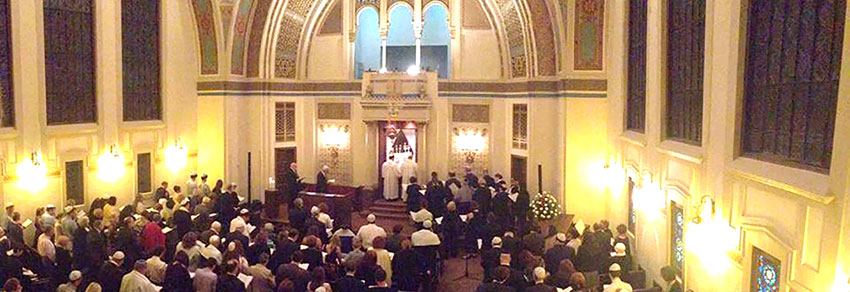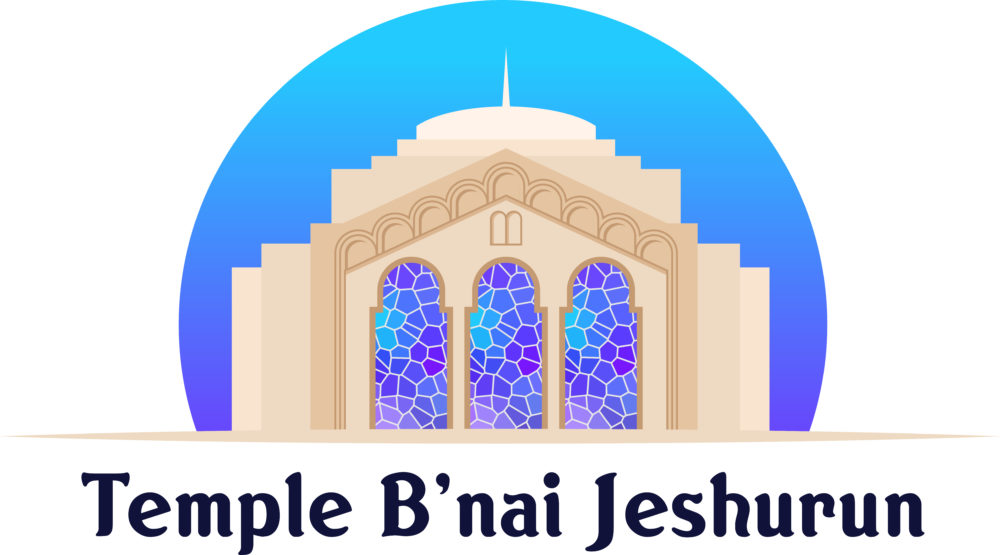To access our online Service Booklets, please click here.
Shabbat
“Those who keep the Sabbath and call it a delight will rejoice!”
At Temple B’nai Jeshurun, we believe that Shabbat services should be meaningful, relevant, and a joy to attend. Our congregation loves to sing and we are known for the music at our services, from our soloists and accompanists to choirs and ensembles. Each week, Shabbat services begin at 6 pm on Friday evenings and at 10:30 am on Saturday mornings. Saturday morning services are preceded by our weekly Text Study which begins at 9:30 am.
Services over the rest of the month utilize the Reform movement’s prayerbook, Mishkan Tefilah and have contents that change week to week. Some weeks will feature a sermon, others a text study, or a set of songs prepared by our choir. Most weeks, music will feature a soloist and accompanist on guitar, but on no few Shabbatot (the plural of the word “Shabbat”), we have additional voices and instruments participating as well.
Family Services
Each month on the first Friday Rabbi leads Family Shabbat services. We use a prayer book oriented toward children and feature a story.
We also hold family-oriented services for many holidays, including Rosh Hashanah, Yom Kippur, Sukkot, Simchat Torah, Chanukah and Purim. Our congregational Passover Seder is fun for children of all ages! We also hold special Shabbat services throughout the year designed for families with young children, such as Zoo Shabbat at Blank Park Zoo and a Pet Shabbat service.
Visitors
Visitors are always welcome and students and tour groups are often present. We ask that groups call our office (515-274-4679) so that we might ensure both that we might provide appropriate accommodations for your and our needs. Most people attending services at the Temple will wear “business casual” attire. Many of our members come to services straight from work on Friday nights. Students often come from school to services and school appropriate attire is perfectly fine as well. In a Reform congregation, men are not required to cover their heads, nor are women required to cover their shoulders. We do provide kipot (also known as “yarlmulkes,” the skull cap traditionally worn by men) for those desiring to wear them.
High Holidays

The High Holy Days at the Temple are open to all and unlike some congregations in larger communities, tickets are not required to attend. The 2024 Schedule details the various services and other events. The High Holidays are . . .
. . . the snapshot the Jewish people pull out every autumn of the great journey all human beings must make across the world: the journey from Tisha B’Av to Sukkot, from Rosh Hashanah to Yom Kippur, from birth to death and back to renewal again. Seeing yourself in this snapshot will help you chart the course of your own spiritual evolution. Every soul needs to express itself. Every heart needs to crack itself open. Every one of us needs to move from anger to healing, from denial to consciousness, from boredom to renewal. These needs did not arise yesterday. They are among the most ancient of human yearnings, and they are fully expressed in the pageantry and ritual of the Days of Awe, in the great journey we make between Rosh Hashanah and Yom Kippur. (Alan Lew, 2003, This Is Real And You Are Completely Unprepared)
